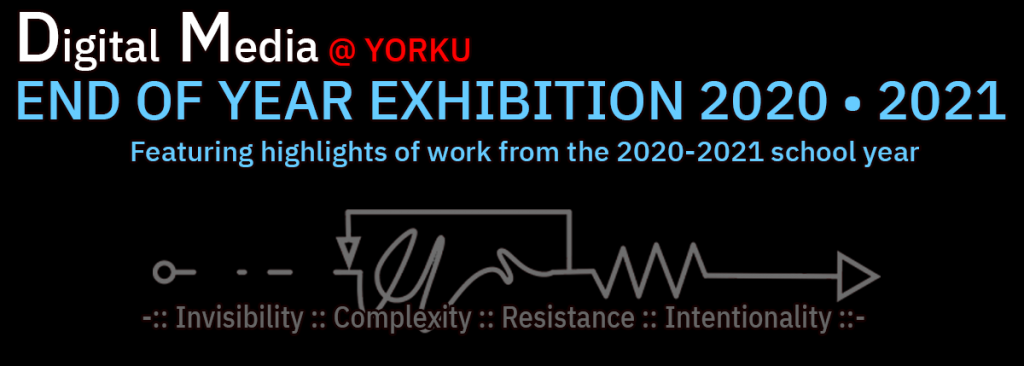
April 19-26, 2021
About • Exhibition • Performances • Talks
About
Our Curatorial Theme: 2020-2021
Invisibility :: Complexity :: Resistance :: Intentionality.
The year 2020 and 2021 has seen the unfolding of a pandemic and a global response that is unprecedented in its scale and scope at any time in history. It has been a time of great loss, including the loss of life, the loss of financial and personal security, the loss of opportunity, and the loss of human connectivity. As artists, thinkers, and creative practitioners, this is an essential moment for us to engage the world and use our unique perspective to confront the urgent matters of our time. The computational approach to making provides us with a unique standpoint in this conversation where we bridge the domains of art, science, and technology to critically engage the world through a discourse on technology at its roots. By using code and signals as an expressive medium we can reimagine past, current, and future technologies, steering technological impact and influencing our mutual prosperity and collective futures. It is in this spirit that Digital Media and the Department of Computational Arts at York University presents our END OF YEAR EXHIBITION 2020 • 2021: As part of this exhibition, we will be hosting a series of events that include an exhibition launch, guest speakers, and performances.
For more on our curatorial theme please see:
The Department of Computational Arts Curatorial Theme, 2020-2021
Exhibition
FA/DATT 1010 Introduction to Interactive Digital Media I
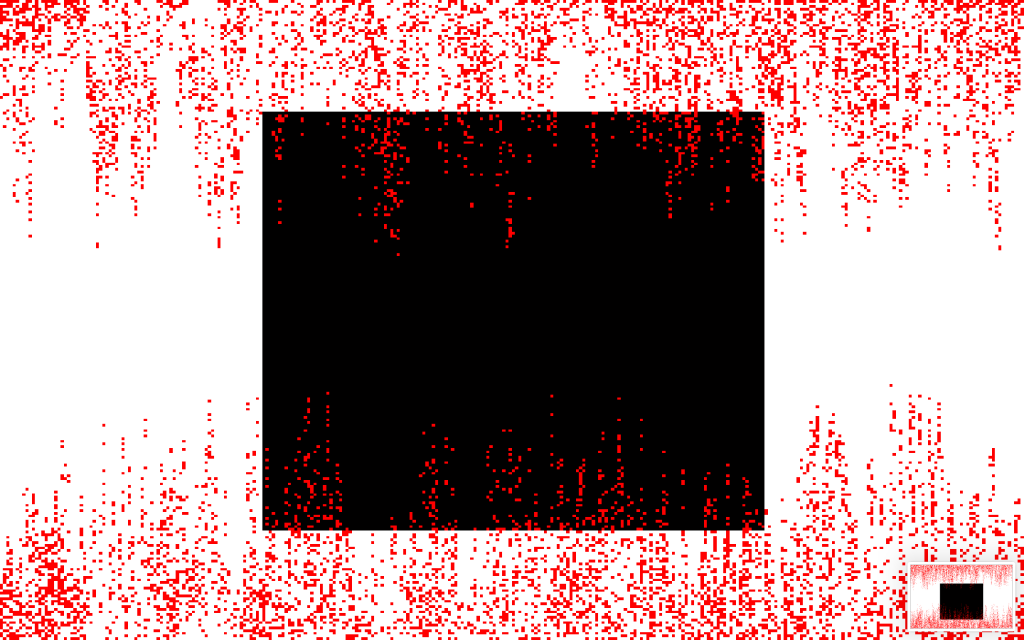
Course Director: Nadine Wettlaufer
TA’s: Rory Hoy, Hrysovalanti Maheras, Marcus Gordon
Projects link: http://dmgallery.apps01.yorku.ca/2020-2021-datt-1010/
Works by: Erica Wellman, Kaitlin Urlando, Ashton Arquelada, Suyash Singh, Anna Chistiakova, Haozhang Dang, Julia Le, Amanda Ma, Jing Meng, Megan Stevens, Georgius Bryan Winata, Maykel Shehata
Exploration of interactive digital media using a programming environment designed for creative use, such as Max/MSP. The primary content of this course will be presented in a series of themes that provide the basis for the exploration of computational art through fundamental tools needed for the analysis, evaluation, and creation of interactive computational art works, including the exploration of generative art, sound manipulation and effects, video manipulation and effects, and 2D graphics in run-time environments. Emphasis on cultural analysis about the important role that computational media have in the arts, as well as integration of key ideas and computer programming methods. Students will put these concepts in practice through the development their own projects.
FA/DATT 1939 Making Interactive New Media Art
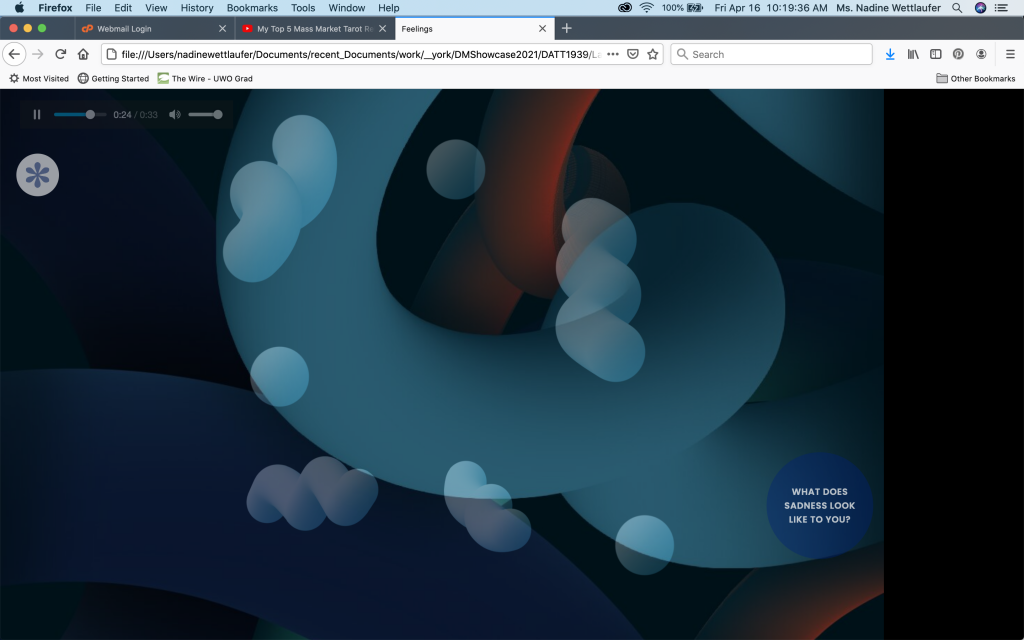
Course Director: Nadine Wettlaufer
TA: Nicholas Fox-Gieg
Projects link: http://dmgallery.apps01.yorku.ca/2020-2021-datt-1939/
Works included:
World of Emotions
Saba Aafreen, Farah Shehadeh, Arsheen Virani
The Gift
Madeleine Gagnon, Tristan Sabado, Christina Yuen
COVID-DUTY: SAVING EARTH
Christopher Bolliger, Krishma Chopra, Taha Hossain, Hyacinth Vibangco
Journey to the Mysterious Ruins
Ren Taat Isaac Siaw, Jeffrey Smith
Introduces students with little or no experience in the creation of new media works to the issues and techniques that will enable them to engage critically and creatively with the area. In the relatively short history of new media, a new language and tool set have become pervasive in the world of art making. This course provides students with an introduction to interactive new media. Using HTML, JavaScript, and Photoshop, students will engage with the web as a creative medium. Projects will be based in a variety of new media genres including net.art, blogs, interactive narrative, and randomness. Course Material fees required.
FA/DATT 2010 Physical Computing II
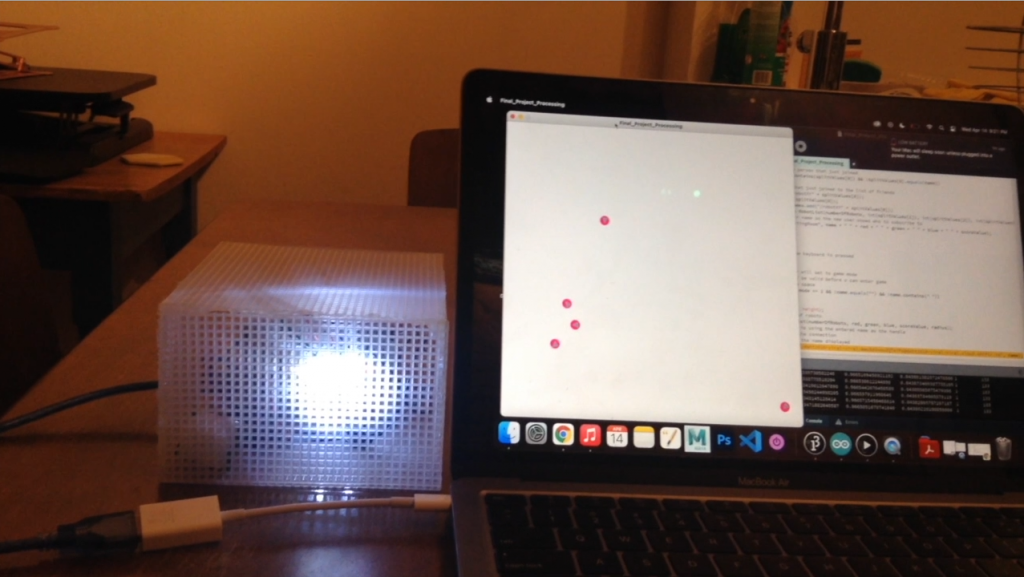
Course Director: Dafydd Hughes
Works included:
Interactive Watch Party
Talayeh Amiri & Christine Matti
Viral/Viral
Adrian Fearman, Chibuzor Igwilo, Eric Lin
Builds on the material covered in Introduction to Physical Computing to explore new forms of engagement and interaction in specific areas including: wearable computing, wired and wireless communication, and instrument creation. Students will develop a larger work for public presentation.
FA/DATT 2050 Media Signal Processing
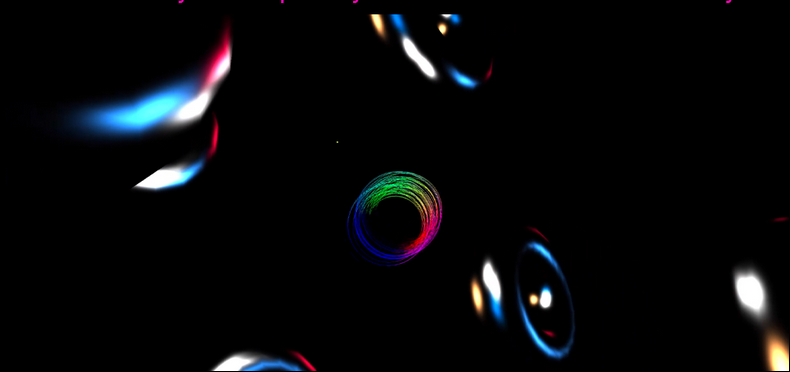
Course Director: Don Sinclair
TA: Michael Palumbo
The Dark Side of the Hills
Sina Karimi and Amirsalar Vatankhah Lotfabadi
No New Normal
Murley Herrle-Fanning and Nikolas Chiu
Introduces the concepts and techniques of digital signal processing and their application in both sound and image resulting in the development of works that are cross-modal hybrids between sound and image, such as found in the Visual Music aesthetic.
FA/DATT 2100 Publishing in Digital Media

Course Director: Jane Tingley
TA: Hrysovalanti Maheras
Projects link: http://dmgallery.apps01.yorku.ca/2020-2021-datt-2100/
Works included:
Neuralink
Michael Rizza, Linda Tieu, Jethro Sanchez, Daniel Paulraj, Matthew Lucchitti
Berkya
Ruijie Chen, Meiqi Liu, Yanyun Feng, Yuhan Shi, Zhijian Weng
Ariadne
Kristen Chan, Ingrid Wong, Murley Herrle-Fanning, Sasha Tarassova, Faadhi Fauzi
Apollo Labs
Adam Catahan, Ho Chun Chan, Muhammad Daniyal Durrani, Clarissa Li, Arshad Ousmand, Thurston Tran
Nanobots
Sayid Allie, Talayeh Amiri, Yurij Kunyckyj, Susan Mclean, Anthony Scali
Digitron
Amanda Monasar, Chi (Emma) Nguyen, Rachel Goudi, Yi Chen, Zeeshan Baig
Introduces techniques and strategies for the documentation and dissemination of work in the digital age. Students will expand their skills in traditional and internet-based research in tandem with developing competence in the clear, concise communication of ideas through appropriate integration of text, visual, sonic and interactive components. Overview of tools such as image processing, web development, mobile content development, and content management systems.
FA/DATT 2300 Game Development I
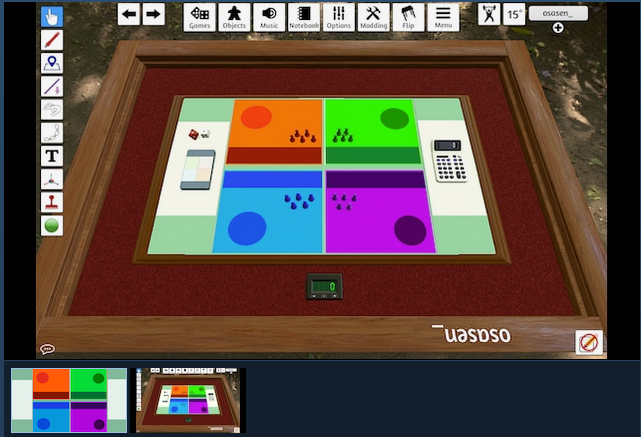
Course Director: Yifat Shaik
TA’s: Sarah Vollmer and Nicholas Fox-Gieg
Projects link: http://dmgallery.apps01.yorku.ca/2020-2021-datt-2300/
Works included:
Dark Academia
Julia Sebastien
Cats Fishing
Alexandra Tarassova
Blockways
Murley Herrle-Fanning
Pawn Run
Maksim Pralat
Night’s Watch
Oluwatobi Oyero
Introduces the essential workflows and requisite knowledge for game development through the design and creation of game prototypes using a game engine. Provides an introductory hands-on approach to the study and practice of games, gamification, and game play and their use in various applications, including video games, simulations, serious gaming, and art making contexts. The course will take practical and theoretical approaches to game production in a variety of gaming contexts. Emphasis will be on implementation, using software tools and engines found in professional game development and in the making of technology-based art practice. While a large part of the focus of the course will be on standard game techniques as applied in gaming contexts, this course will also focus on the applications in non-gaming contexts, known as gamification. Gamification involves the larger implications of game techniques in a variety of fields including interactive art, multi-stakeholder engagement, serious gaming, learning, and other problem solving scenarios. This course will also explore new and cutting edge trends in gaming, such as in the areas of alt gaming, Not Games, and urban gaming where the potential and boundaries of games and game play are being challenged and tested.
FA/DATT 2500 Introduction to 3D Modelling
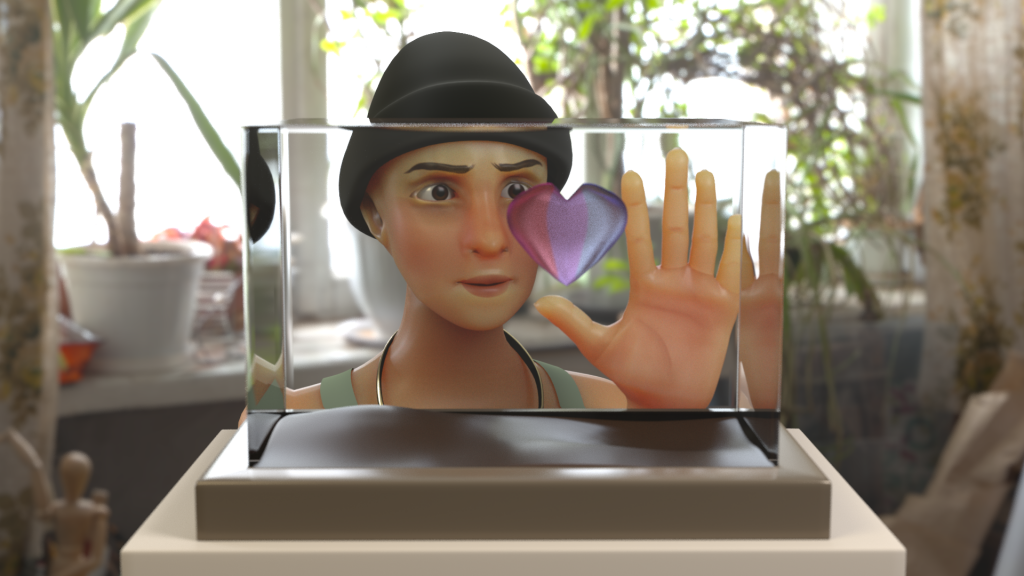
Course Director: Joe Hambleton
TA: Ilze Briede
Projects link: http://dmgallery.apps01.yorku.ca/2020-2021-datt-2500/
Works by: Alexis Estropia, Yousuf Zakhe, Christian Pomponio, Yue Chen Wu, Chi Nguyen, Jasleen Chagger, Isabella Missios
Provides a foundation in 3D modelling using state of the art render time 3D modelling software such as Maya, Blender, and 3DS Max. The course will provide a survey of various modelling techniques and approaches with an emphasis on modelling used in 3D art, 3D animation and games. Topics include photorealistic rendering, scene building, character modelling, and the use of 3D graphics in simulation and visualization.
FA/DATT 2501 Introduction to 3D Animation
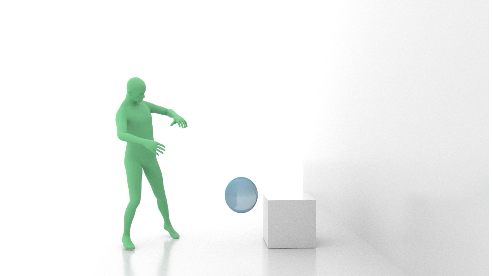
Course Director: Joe Hambleton
TA: Ilze Briede
projects link: http://dmgallery.apps01.yorku.ca/2020-2021-datt-2501/
Works by: Linda Tieu, Xinyang Wang, Adrian Fearman, Maykel Shehata, Julianna Da Silva, Arien Quader
Provides a foundation in 3D animation using state of the art render time 3D modelling and animation software such as Maya, Blender, and 3DS Max. The course will provide a survey of various animation techniques and approaches with an emphasis on render time animation as it is used in 3D art, 3D animation, data visualization and games. Topics include, scene building, character animation, timeline based animation techniques, and the use of 3D graphics in simulation and visualization.
FA/DATT 3300 Game Mechanics
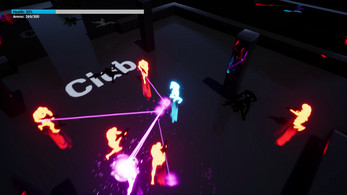
Course Director: Yifat Shaik
TA: Gillian Blenkkenhorst
Projects link: http://dmgallery.apps01.yorku.ca/2020-2021-datt-3300/
Works included:
Neon Street Shootout
Alexandro Di Nunzio
One Button Game
Eyad Tawfik
Explores the rules and procedures followed by players and games-more broadly and not limited to computer games-that are the building blocks that make up gameplay. Students look at the various aspects of game mechanics; what they are, how they can be formed, how they interact with each other, what values they transmit and topics relating to the application of game mechanics. Examines system dynamics, balancing luck and skill, cooperation and competition, in variety of gaming and non-gaming contexts. Students will prototype, test, and implement mechanics in games and learn how to visualize, simulate and operationalize game mechanics. Topics include: emergent gameplay, balancing game mechanics and level design, and scripted events vs. dynamic progression systems.
FA/DATT 3700 Collaborative Project Development
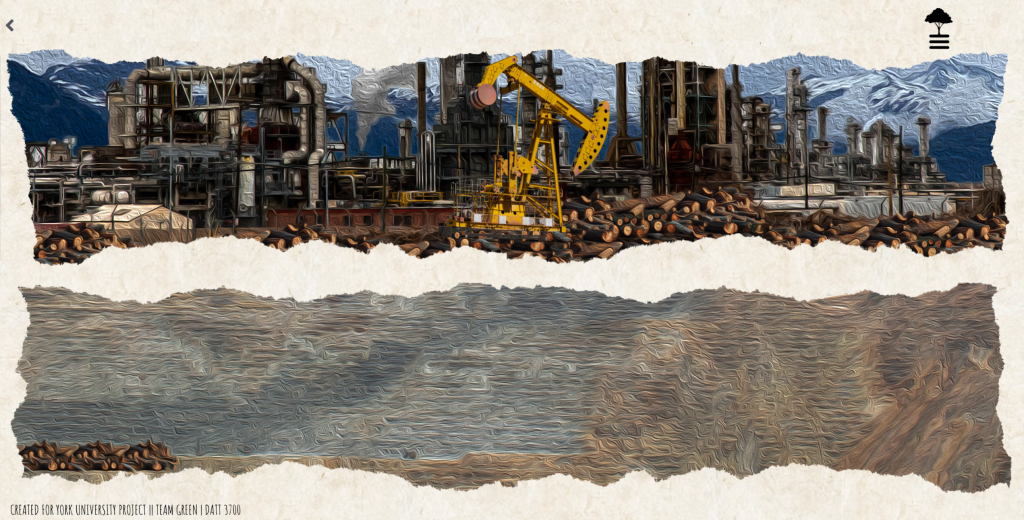
Course Directors: Jane Tingley and Dafydd Hughes
Works included:
GreenIsland
Bowen Xi, Chenlin Liu, Shengyao Wu, So-Hyen Min, Zeynab Mahdi, Xiaoya Wang, Yige Su
NoiSense
Jiazhen Mao, Ruijia Mei, Ahmed Saeed, Yixuan Shan, Chen Sun
Should I get a new phone?
Silvio Chen, Yu Fujishiro, Vibhu Kamboj, Keeley Litzenberger, Vladislav Luchnikov, Rimsha Nawaz
HungerCraft
Ruiqi Gao, Faisal Hamdan, Yu-Tzu Hsu, Ziming Ren, Jason Sankhar, Shangrong Yue
Deforeventure
Philip Michalowski, Ruilin Qi, Megan Stevens, Hikari Takeda, Zining Wan, Bei Zhang
The entire class collaborates on the realization of one or two ambitious projects. Students will work together as a development team by taking on roles where they focus on specific aspects of the project (such as Director, Designer, Artist, Programmer, Sound engineer, Interaction Designer, Publicity). The development team structure is modeled on teams used in large-scale project development within fields related to Digital Media, such as contemporary art practice, game development, creative software development, and interactive experience development that rely on multi-stakeholder collaboration and interdisciplinary research. Projects may incorporate partnerships with York-based Faculties, Departments, or research teams depending on the focus of the project. The nature of the project will vary from year to year, but will be a significant work in the field of Digital Media. The Instructor(s) will prepare a general description of the project(s) at the beginning of the course. The details of the project(s) will be developed as part of the class activities. As part of the project development and execution students will be expected to prepare presentations, posters, and a written paper. The culmination of this course will be a final presentation, which will be open to the public. In addition to group assignments, students are evaluated based on their individual contribution, teamwork, presentations, and other deliverables as appropriate.
FA/DATT 3701 Collaborative Project Development in Games
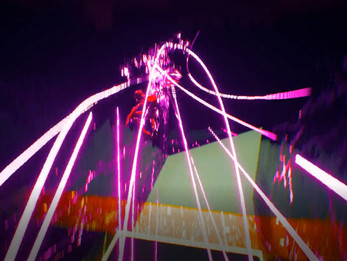
Course Directors: Yifat Shaik and Sagan Yee
Works included:
PRISON ESCAPE
Fahad Edward, Bartu Gurel, Alina Manase, Ashton Wilks, Hao Xu
Glitched
Eyad Tawfik, Lukas Radlin, Jiahui Han – Level Designer, Yalin Yang , Rafid Naeem
(Spacemen, Strategists)²
Juan Callejas, Alexandro Di Nunzio, Kenny Su, Cindy Vu, Ramisha Wasim
The entire class collaborates on the realization of one or two ambitious game projects. Students will work together as a development team by taking on roles where they focus on specific aspects of the project (such as Director, Designer, Artist, Programmer, Level Designer, Sound Designer, Publicity). The development team structure is modeled on teams used in large-scale project development within fields related to games that rely on multi-stakeholder collaboration and interdisciplinary research. Projects may incorporate partnerships with York-based Faculties, Departments, or research teams depending on the focus of the project. The nature of the project will vary from year to year, but will be a significant work in the field of games. The Instructor(s) will prepare a general description of the project(s) at the beginning of the course. The details of the project(s) will be developed as part of the class activities. As part of the project development and execution students will be expected to prepare presentations, posters, and a written paper. The culmination of this course will be a final presentation, which will be open to the public. In addition to group assignments, students are evaluated based on their individual contribution, teamwork, presentations, and other deliverables as appropriate.
FA/DATT 4300 Game Development II
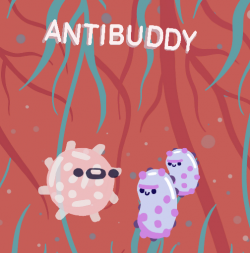
Course Director: Yifat Shaik
Works included:
Bok Choy: Tale of the Hidden Tower
Shahrayar Rafiqui, Joshua Cabrera , Jorge de Oliveira, Tony, Jamie Choi
Antibuddy
Juan Callejas, Matthew Ierfino, Aylin Tamer, Alina Manase, Raghad El-Shebiny, Zannie Victor-Ogbondah
Advanced topics in game development and implementation such as game engine techniques, game engine scripting, prototyping, player controls, and level design building on previous courses in game development and game mechanics. Advanced hands-on approach to the study and practice of games, gamification, and game play and their use in various applications, including video games, simulations, serious gaming, and art making contexts. Further explores new and cutting edge trends in gaming, such as in the areas of alt gaming, queer games, Not Games, and urban gaming where the potential and boundaries of games and game play are being challenged and tested.
LE/EECS 4700 Digital Media Project (Capstone)
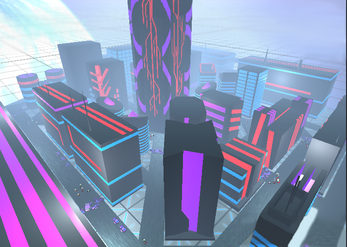
Course Directors: Petros Faloutsos, Joel Ong
Works included:
Projected Selves
Alexis Wspanialy, Kathryn Bower, and Keon Rastgoo
Break Ice
Yahui Zhao, Tianyang Zhan, Rumei Mai, Yu Liang, Rongyi Liao
Project Invaders
Yodhin Singh, Alina Manase, Antonio Nardi, Lisa Ghouchandra, Zannie Victor
Gloves for Change
Aylin Tamer, Karishma Patil, Matthew Ierfino, Jorge De Oliveira
DejaVu
Dylan Bugeja, Jiajun Xu, Jie Gao, Rafid Naeem, Xinze Li
Umbra Immortuos
Hao Tang, Xicheng Lian, Jiaoxuan Hou, Kadia Gregory
Ashlynn
Eric Lin, Hao Xu, Janus Chui, Ruoming Lin
ARium
Amir Rostami, Yunshang Jiang, Shahrayar Rafiqui, Nicholas Lina
Hi, Yuri
Michelle Lin, Jieyi Li, Yuanfen Gu, Yutao Zhu, Yuting Cui
This course involves the completion of a significant body of work in the area of Digital Media. The project will normally be a team project involving the development and analysis of a digital media work potentially having elements of interactivity, animation, 3-D graphics, and sound for example. The project will be presented at a public workshop towards the end of the year.
Independent Project

by Kavi
In 2006, I drew this short story about the imagined far future and a woman who gazes out of the window at a breath-taking panoramic view of the futuristic city. I wanted to capture the passing time and the motion of slowly disappearing elements on the paper. Thinking in line with the Digital Media online exhibition and curatorial theme for 2020-2021 Invisibility :: Complexity :: Resistance :: Intentionality, this drawing kept coming into my mind. It resonated with me deeply in connection with the subject of invisibility. I wanted to revisit this work and add animation and sound to it while keeping to the original storyline.
Performances
2020-2021 :: DATT 3931/4931 Collaborative Performance Project I & II
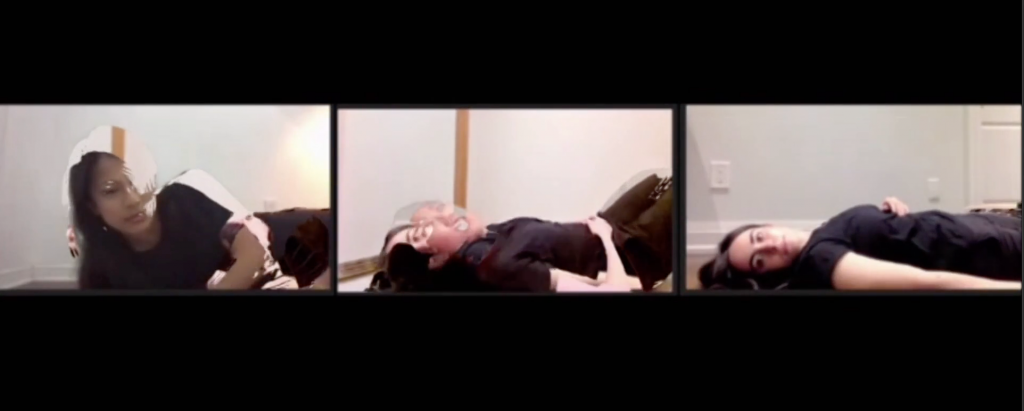
Course Directors: Susan Lee and Don Sinclair
Project link: http://dmgallery.apps01.yorku.ca/2020-2021-datt-3931-4931/
Works included:
Melding Vista
Bridget D’Orsogna, Nour El Zein, Faadhi Fauzi, Andrea Madore, Leslie Woo, JiaJun Xu, Jialei Zheng
Escape
Reece Caldwell, Jace Junyu Gao, Zeynab Mahdi, Alyssa Nunziato, Eyad Tawfik, Hao Tang, Bayley Wyatt
The Game of Life
Teagan Ariss, Youssef Bassit, Kelly Choi, Jie Gao, Kwame Kyei-Boateng, Kyra Todd
In this course students work on a large scale project in collaboration with the Departments of Dance, Theatre, and/or Music. Students engage in a collaborative interdisciplinary artistic creation process with students from participating departments under the direction of an Artistic Director(s). The final project is typically presented in one of AMPD’s large performance facilities. Time flexibility on the part of students in this course is critical as class sessions are scheduled around the availability of a diverse team.
Talks
Maize Longboat and Kawathawks Tiewishaw
Wednesday Aprils 21, 2021 4PM EST
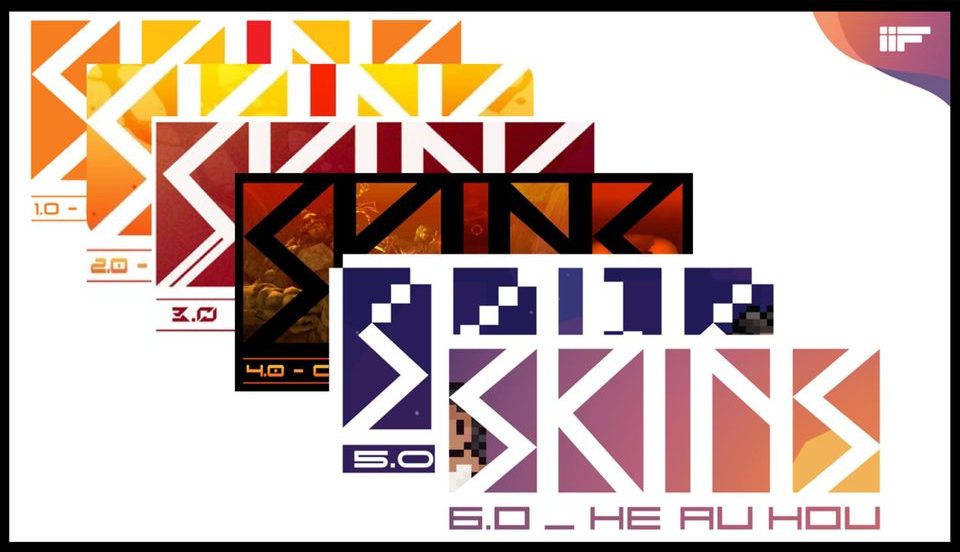
ZOOM Link: https://yorku.zoom.us/j/94196041952…
Meeting ID: 941 9604 1952
Passcode: 359257
YouTube Channel: https://www.youtube.com/channel/UCVqgHfQ21kQJLaTWmSgKlvg
Facebook: (2) Speaker Series: Kahentawaks Tiewishaw and Maize Longboat | Facebook
FREE & Open to the PUBLIC
Kahentawaks Tiewishaw is a bear clan Kanien’kehá:ka visual artist from Kanehsatake. Her practice includes 3D modeling, illustration, game making, and sculpture. She is the Skins Workshop Associate Director with Aboriginal Territories in Cyberspace (AbTeC) and the Initiative for Indigenous Futures (IIF). She graduated from Concordia University with a BFA specializing in Computation Arts. Kahentawaks is deeply interested in video games as a vehicle for Indigenous cultural expressions and experiences, as well as their capacity to facilitate the healing of intergenerational trauma.
Maize Longboat is Kanien’kehá:ka from Six Nations of the Grand River and was raised on the unceded territory of the Sḵwx̱wú7mesh Nation near Vancouver, BC. He is a Developer Relations Manager with Unity Technologies and served as Skins Workshops Associate Director with Aboriginal Territories in Cyberspace (AbTeC) and the Initiative for Indigenous Futures (IIF) from 2019 to 2021. He holds an MA in Media Studies from Concordia University. His MA research examined Indigenous videogame development through the production of his own game Terra Nova, an award-winning cooperative platformer with an interactive narrative.
Sölen Kiratli
Thursday April 22, 2021 1PM EST
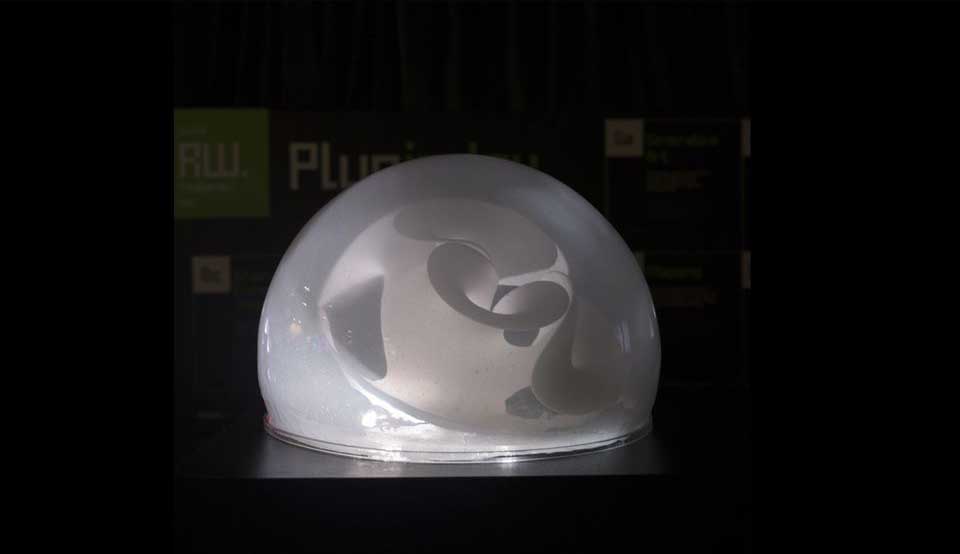
ZOOM: https://yorku.zoom.us/j/95774765163…
Meeting ID: 957 7476 5163
Passcode: 549594
YouTube Channel: https://www.youtube.com/channel/UCVqgHfQ21kQJLaTWmSgKlvg
Facebook: (2) Speaker Series: Şölen Kıratlı | Facebook
FREE & Open to the PUBLIC
The SpeakerŞölen Kıratlı (Ph.D. Media Arts) is an artist, architect, researcher, and lecturer. Her work is interdisciplinary and deals with issues of agency and digital technology—including machinic, organic, and hybrid agents—from a post-humanistic stance. In her artwork she uses a variety of media, including sound and digital audio, interactive and physical computing, machine learning and robotics, and digital design and fabrication. Her work has been exhibited internationally at venues such as SIGGRAPH & SIGGRAPH Asia, ISEA, CURRENTS New Media, Contemporary Istanbul, and NIME (New Interfaces for Musical Expression), amongst others. She is the recipient of several awards from renowned institutions, including SIGGRAPH (“Best in Show”award, 2020) and Fundación Telefónica (VIDA 13.0, Artistic Production Incentives). Şölen Kıratlı has a bachelor’s and a master’s degree in architecture and worked on several architectural projects in the Los Angeles area prior to her current artistic and research practices in digital media arts and technologies.
The Talk:
Sounding Agents—a praxis of embodied and technologically mediated voicesIs technology inherently neutral—in terms of value systems? This is a very broad and fundamental question in philosophy of technology. Whether there is a straightforward answer to this question or not, we have seen that technology can both empower human and non-human agents and at the same time inhibit or control their agency. Moreover, technology can also be used by artists to critically question and reflect on these conditions. In this talk Kıratlı will present her artwork, which features voices of many human and non-human agents that suffer from the adversarial effects of various technologies, along with the ways in which she uses digital technology to embody and empower these voices, closing a full circle.

For inquiries regarding this initiative, please contact: Mark-David Hosale, Ph.D. – mdhosale@yorku.ca
Associate Professor and Chair, Computational Arts/Digital Media Program
School of Art, Media, Performance and Design, York University, Toronto
4700 Keele Street .:. 228 Goldfarb Centre for Fine Arts .:. Toronto ON, M3J 1P3 Canada
http://digitalmedia.ampd.yorku.ca/